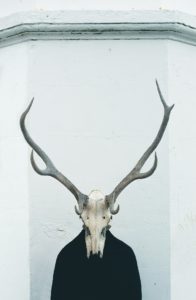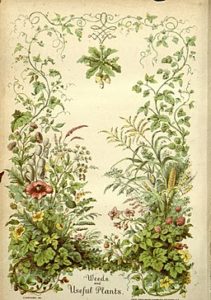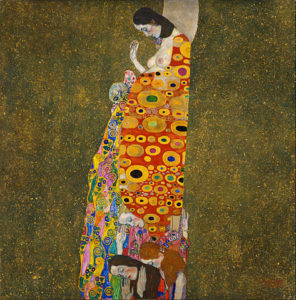
His hands work, flaying the hide from the deer,
parting the sinews that bind it to flesh
with a stone-flake knife; murmuring apologies
and gratitude for the gift of its life.
Dripping, he drapes it over his shoulders;
feels the still-warm blood course down his spine,
feels the weight of the antlered skull upon his brow,
feels the wet sinews bind to his flesh.
His hands clench to fists, become hooves, his spine
contorts—and then he races away through
the woods, fleeing pursuers more deadly
than any mere wolf.
When he comes to rest in a cold camp,
fireless, he strips off the borrowed skin,
but leaves the head in place—a mask with
sightless eyes, carved from flesh, and hard as bone.
Wolves come, having scented wounded deer,
but whine and press bellies to earth when they
meet his lifeless eyes; they know he is no prey.
They gather close and warm him until dawn.
When his pursuers come too close, the wolves
begin to howl, and the man puts back on his skin—
flees as the wolves harass the men who pursue him.
At sunset he returns to find their bodies, fletched.
Weeping, he thanks them for their kindness,
and then his hands work once more,
separating supple skin and soft fur,
settling it over his shoulders once more.
His nose touches earth; he catches the scent
of those who pursue him—and this time
when he leaps from the brambles it is he
who hunts for them.


